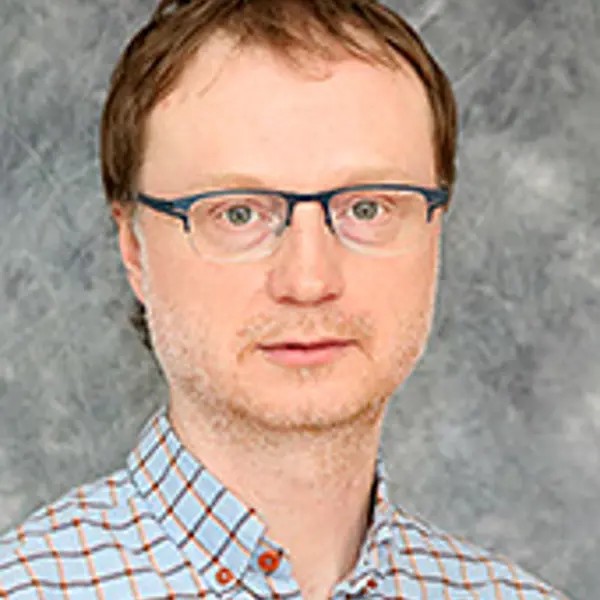Claes Andersson
My research focus lies on the long-term and large-scale evolution and organization of human societies. Presently, I work mainly with the deep human past, opinion dynamics and economic geography.
We work on several levels – from specific case studies up to conceptual, modeling and methodological development. The basis is the presence of dynamical systemic features that are common to just about any adaptive dynamical systems: animal culture, early hominin culture, modern culture, biological organic evolution – even how we distribute our activities today across geographical and social space.
The origins and evolution of human societies is key to understanding the world of today. Our cultural and biological features evolved together over periods of time that are vast compared to historical times. Culture makes us human – but we are also very specifically adapted to a cultural life, with a unique suite of genetic adaptations that permits us to operate in such a setting.
Building an improved understanding of this is key to understanding things like how nature and nurture should be delineated and how their interplay should be understood. But also to address very fundamental and even existential questions about what – if anything – it is to be human as opposed to just an animal. Although the empirical evidence is growing dramatically, we still lack a unified understanding of how humans evolved.
I also take an interest in complex systems more fundamentally: What type of system are we talking about? What features do problems and solutions in such a system have with regard to finding, understanding and dealing with them? Research has become more and more tightly integrated with policy over the past decades, but we are still quite inexplicit about how systems and problems under study are or should be conceived. Society is complex – nobody would object to that. But what is it to be complex? How does the complexity of societies compare with the way in which, say, bird flocks and computers are complex systems? What does this tell us about what methodologies and tools we should be using or developing? About the types of goals that we may have when trying to control societal system? What about unknown by-effects, for example?
What I see as key to the type of complexity we see in modern large-scale human societies is a general lack of clear scale separation. The dynamics of generated higher levels of organization unfold on timescales that overlap with those on lower levels. There is in the general case no way to make a clear cut across cultural sub-systems and isolate them for controlled study (such as by means of models). The rules of the game change on similar times scales that the game itself changes.
We call such systems, and others like them, “Wicked Systems” (see Societal Systems: Complex or Worse below) – and to understand them we think we need a constructively critical attitude to current approaches in science, one where one takes care not to throw the baby out with the bathwater!"

Showing 37 publications
The transition from animal to human culture – simulating the social protocell hypothesis
Did Human Culture Emerge in a Cultural Evolutionary Transition in Individuality?
Modeling the emergence of affective polarization in the social media society
Preferential centrality as a multi-regional model for spatial interaction and urban agglomeration
Cultural complexity and complexity evolution
Toward a Macroevolutionary Theory of Human Evolution: The Social Protocell
Preferential centrality - a new measure unifying urban activity, attraction and accessibility
Wickedness and the anatomy of complexity
The evolution of cultural complexity: Not by the treadmill alone
Group size and cultural complexity
Societal Systems - Complex or worse?
An evolutionary developmental approach to cultural evolution
Complexity Science and Sustainability Transitions
Developing of the future: scaffolded Darwinism in societal evolution
Fidelity and the emergence of stable and cumulative sociotechnical systems
Splitting the replicator: generalized Darwinism and the place of culture in Nature
Inverse Ontomimetic Simulation: A Window on Complex Systems?
Sophisticated selectionism as a general theory of knowledge
The embryology of an urban growth model
A complex networks approach to urban growth.
A spatial network explanation for a hierarchy of urban power laws.
Assessing the impact of temporal dynamics on land-use change modelling
The urban economy as a scale-free network
The urban economy as a scale-free network.
Urban growth from "first principles".
First exploration on the impact of temporal resolution on dynamic land use change modelling
Modeling cities: The Los Alamos urban security initiative
Evolving coupled map lattices for computation
Download publication list
You can download this list to your computer.
Filter and download publication list
As logged in user (Chalmers employee) you find more export functions in MyResearch.
You may also import these directly to Zotero or Mendeley by using a browser plugin. These are found herer:
Zotero Connector
Mendeley Web Importer
The service SwePub offers export of contents from Research in other formats, such as Harvard and Oxford in .RIS, BibTex and RefWorks format.
Showing 2 research projects